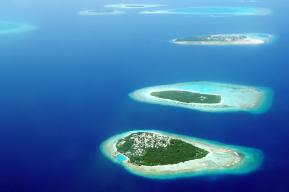Article
STEM Alliance for South-East Europe and the Mediterranean to advance regional STEM education

On 23-24 November 2023, government officials, education authorities, scientists, academics, educators and UNESCO Chairs and Centres from 14 countries convened at the STEM Alliance Conference titled “Unleashing the potential of STEM education in South-East Europe and the Mediterranean: STEM Alliance Conference” in Venice. The event, organised by the UNESCO Regional Bureau for Science and Culture in Europe, with support from the Natural Sciences and Education sectors at UNESCO, resulted in the launch of the STEM Alliance for South-East Europe and the Mediterranean and the adoption of its Roadmap.
In the fast-paced and ever-evolving landscape of the 21st century, the need for a comprehensive overhaul of educational systems has become increasingly apparent. Knowledge and learning have long played a crucial role in the transformation of our societies. As UNESCO’s 2021 report, Reimaging our futures together: A new social contract for education, highlights "but to shape peaceful, just, and sustainable futures, education itself must be transformed”. Strengthening education as a public endeavour and a common good requires a society-wide commitment to include all stakeholders in public conversations about the prospect of education.
Today’s conference is a first step in advancing STEM education in the region. I trust there is much potential for further collaboration and joint projects, bringing together the expertise of science and education communities.
With an emphasis on fostering collaboration among stakeholders, particularly those involved in educating the next generation of learners in a rapidly changing technological landscape, the conference sought to address specific issues and stimulate the exchange of creative practices from the region, with the aim of creating the foundations of a strong regional STEM Alliance.
Co-led by the Science and Education teams within the UNESCO Regional Bureau, the conference provided an opportunity to discuss lessons learnt, share experiences and good practices, and explore future opportunities.
UNESCO keynote speakers, Shaofeng Hu, Director of the Division of Science Policy and Basic Sciences, Natural Sciences Sector, and Sobhi Tawil, Director of the Future of Learning and Innovation team, Education Sector, emphasised the need for a unified and forward-thinking approach, underlining the critical role of STEM education in fostering innovation and global competitiveness while stimulating problem solving and critical thinking.
Quality education is about fostering intellectual curiosity, creativity and ability to think outside of the box, and STEM subjects have the potential to promote all of these.
The conference featured a series of insightful panel discussions with renowned educators, global leaders, and policy makers, that delved into key aspects and challenges related to STEM in the region. Discussion centred on ensuring equity and inclusion, dispelling misconceptions and biases and advocating for inclusive policies at all levels.
Panellists addressed the potential of Information and Communication Technologies (ICTs) as catalysts for advancing science and education-related SDGs. In a third panel, discussion focused on exploring policy landscape and national policies that promisingly support STEM education.
Six thematic roundtables provided participants with a platform for in-depth discussions and knowledge exchange, with lively group conversations about the difficulties they encountered in their respective educational environments and explored together practical solutions.
The conference served as a platform for different actors to showcase innovative initiatives that have proven successful as Teaching and Learning methods.
“Hands-on learning experiences presented on the second day, broke down the barrier between theory and practice, providing tangible examples of cutting-edge teaching strategies”, Baker added.
Participants left with useful knowledge and resources that they will use in their own teaching environments. Presentations covered:
- LabXchange platform - Alain Viel and Gaurav Vazirani (Harvard University)
- 3D printing as a teaching and learning method - Leonidas Paterakis (FablabVenezia)
- STEM and public engagement: Example from Malta - Edward Duca (University of Malta)
STEM subjects, with their interdisciplinary nature across different educational and societal domains, require support from strong cooperation consisting of all stakeholders, including scientists, educators, learners, policy makers, civil society, and the private sector. This was the basis that led to the foundation of the STEM Alliance for South-East Europe and the Mediterranean.
At the close of the conference, participants, under the guidance of Magdalena Landry, Director of the UNESCO Regional Bureau, adopted the STEM Alliance Roadmap for South-East Europe and the Mediterranean, to catalyse concrete efforts in advancing STEM education in the region in years to come.
The STEM Alliance Conference and the launched Alliance represent a great initiative that spearheads strategic collaboration between the Science and Education sectors at UNESCO and with governments, scientists, educators and UNESCO networks in South-East Europe and the Mediterranean.








